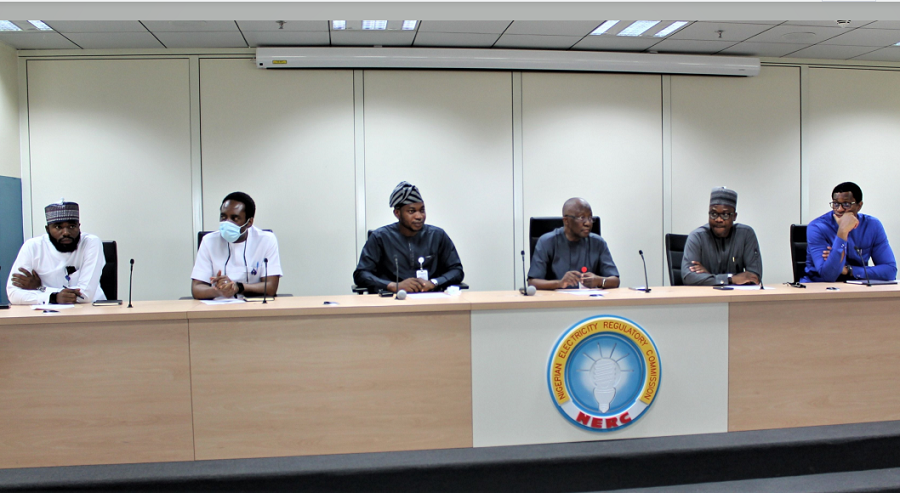The epileptic state of power supply in Nigeria has long been a drag on the nation’s economy.
It increases the cost of doing business and makes the economy less competitive.
According to a Report, titled “Back to Growth: Priority agenda for the Economic Revival of Nigeria”, carried out by Nanyang Technological University, Centre for African Studies, Singapore, “Unreliable power supply shaves at least 5 percent of the GDP, costing the economy US$28 billion a year.
Nigeria lags behind other African countries when it comes to electrification.
Only 55 percent of the country has access to electricity, and most firms connected to the national grid receive less than five hours of power per day”.
Against the foregoing backdrop, not a few electricity consumers engaged by Daily Independent in a staggered parley were unanimously of the view that the issue of epileptic power supply has been a critical challenge to the government; from one political dispensation to another.
As they unanimously sounded, it seems no government has ever found a solution to the problem as all kinds of explanations as to why the challenge persists are usually offered ostensibly to pacify Nigerians.
It would be recalled in this context that the Transmission Company of Nigeria (TCN) in January 2024 threw insights into the worsening situation of inaccessibility of electricity to millions of Nigerians who are invariably customers to Nigeria’s 11 Electricity Distribution Companies of Nigeria (DisCos), particularly since May 29, 2023 when the new government, been led by President Bola Ahmed Tinubu, succeeded former President Muhammadu Buhari.
In a statement made available to newsmen at a point when the challenge was felt to be critical by virtually all Nigerians, Ndidi Mbah, General Manager, Public Affairs, TCN, said the unfortunate trend was due to gas constraints to the thermal generating companies, and regretted that the challenge impacted the quantum of bulk power available on the transmission to the distribution load centres nationwide.
At the time, Mbah assured that TCN was doing everything possible in collaboration with stakeholders in the power sector to ensure that it continues to keep the grid intact despite the incessant low power generated into the system.
Without a doubt, the trouble with Nigeria’s electricity challenge has been a protracted one so much that it would be recalled in this context that not a few Nigerians have been calling on the government to declare a state of emergency in the sector. For instance, Mr. Chijioke James, President, Electricity Consumers Association of Nigeria (ECAN) recently called on President Bola Tinubu to declare a state of emergency in the power sector against the backdrop of the continuous drop in power generation and supply in-country.
James at the time said, “Electricity consumers are not happy that generation and distribution instead of increasing is dropping.
“I believe that the administration of President Tinubu should take this sector seriously and genuinely declare an emergency in the power sector, giving delivery timelines and be ready to place appropriate sanctions for service providers who do not work towards the actualisation of agreed targets.”
Undoubtedly, his stance cannot be opposed as 26 power generating plants across the country had not been able to generate up to 5000 megawatts in recent times as it used to, even as peak generation had fallen below 4000MW.
Despite the persistent disservice been rendered to a wide spectrum of electricity consumer population across the country, the Nigerian Electricity Regulatory Commission (NERC) has approved a 300% increase in the electricity tariff for Band “A” consumers to ensure sustainable energy distribution.
Accordingly, Power Distribution Companies (DisCos), will be allowed to raise electricity prices for urban consumers to N225 ($0.15) per kilowatt-hour from N68 this month, effective April 1, 2024.
Mr. Musiliu Oseni, Vice Chairman of NERC, who announced this in Abuja, clarified that the rate increase will only affect 15% of the country’s electricity customers.
Oseni, also noted that these customers, who represent 15% of the population, consume 40% of the nation’s electricity.
These customers are classified under the Band “A” service category, and the Distribution Companies must provide a minimum of 20 hours/day measured over one week.
The Vice Chairman of the NERC stated that the current review of the end user tariffs would not affect all other customers under the Band “B” to “E” service category, representing 85% of the customer population.
He further revealed that all DisCos have been provided with mandatory targets for investments and migration of more customers to the Band “A” service category.
“With the newly approved tariffs, subsidies for the 2024 fiscal year are expected to reduce by about N1.14trn in furtherance of the Federal Government’s realignment of the subsidy regime.
“The Commission has established a robust monitoring framework leveraging technology to ensure that the public has visibility of the service covenant with their service providers.”
The NERC leadership also assured Nigerians that the Commission, working with policymakers, remains committed to providing adequate and reliable electricity to all citizens. The Commission diligently works with State governments to deliver on the gains of the Electricity Act 2023.
Daily Independent gathered that since the tariff increase was made public electricity consumers in the country have expressed displeasure over the increase, which is a whopping 300% amid poor services rendered by virtually all the 11 Discos.
Since the increase in tariff was made known to electricity consumers, not a few of them have in their views argued that the essence of the increase in the tariff is defeated as the government could still not guarantee efficient and uninterrupted power.
Former lawmaker Shehu Sani, who represented Kaduna Central District in the 8th Assembly, who has also expressed his concerns regarding the announcement believes that such a drastic increase will have detrimental effects on the lives of Nigerians and businesses alike.
He stated, “Increasing electricity tariffs by 300% will finally electrocute human lives and businesses in the country.”
In a similar reaction, Primate Elijah Ayodele on Thursday slammed the Federal Government for increasing electricity tariff by over 300 percent.
Ayodele, who foretold the increment last year, stressed that it will not bring any difference to the power sector because electricity will still not be as stable as it’s supposed to be.
He stated that the tariff increase will affect so many people in the country and that the idea will lead to disappointment in the government.
The cleric explained that the best thing the government should do is make the electricity supply stable to help local manufacturers and improve the economy before increasing tariff.
In a statement by his Media Aide, Oluwatosin Osho, Ayodele said: ‘’Despite increasing electricity tariffs, it won’t guarantee 24/7 power supply in the country. It won’t make any difference because what is needed right now is anything that will improve the economy and make it better.
‘’Nigeria is still battling with a stable power supply and increasing electricity tariff will not help the country at all. It will only be justifiable if we have electricity stability across the country’’
‘’Increase in tariff will affect a lot of people, it’s an idea that will not last because Nigerians will still be disappointed in the power supply.
The best thing the government can do is to make light stable so that the economy can boom and help local manufacturers before an increase in electricity tariffs.’’
‘’The government is supposed to increase power supply by working on all our dams for stability. The increment is a good idea but it is wrong timing. It won’t give the country what is needed; there won’t be any serious result.’’
He advised the government to make a lot of changes in the power sector, expressing the need for states to be empowered to transmit power, even as he called on the government to check the power supply to neighboring countries, alleging that there is corruption in the system.
‘’The government has to make a lot of changes in the power sector; states should also be empowered to transmit power. We shouldn’t be doing shifts when it comes to electricity. If we have enough power supply, increasing tariffs won’t be a problem.
‘’There is a lot of supply the government is doing, they need to check supply to other countries because there is so much corruption in the system. The system needs to be cleared. I also urge the government to pray against explosion in any of our power transmission facilities,” he added.
According to a local agribusiness owner, Emmanuel Itoro, “The move would have a harsh impact on households, businesses and industries, potentially leading to increased operational costs and living expenses”.


